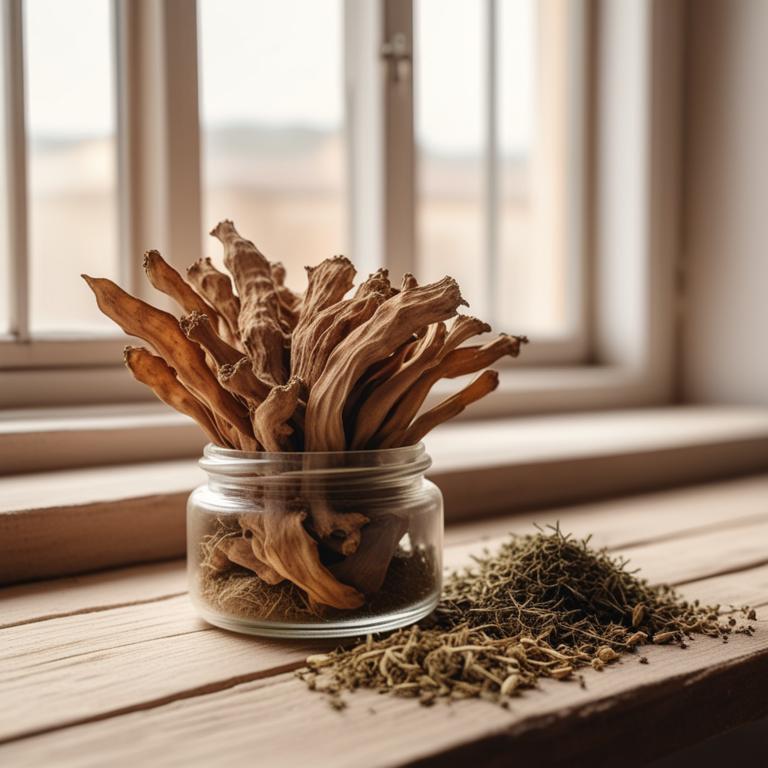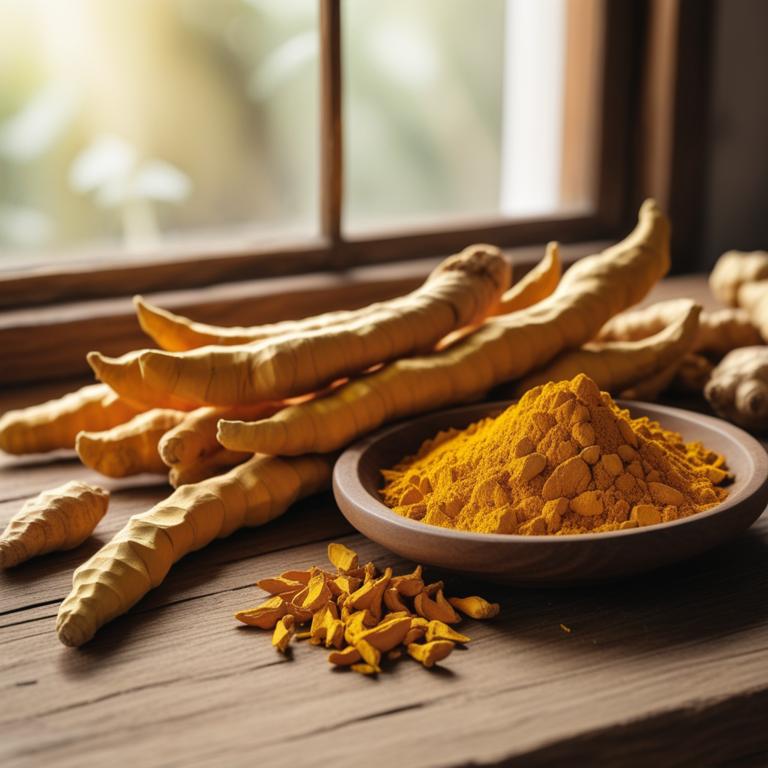Updated: Dec 1, 2024
The Causes and Herbal Preparations of Stomach Discomfort

Stomach discomfort is a common problem that can affect anyone at any time.
It can cause pain, bloating, and nausea, making everyday activities difficult. You may feel too tired to work or too uncomfortable to enjoy a meal with family and friends. Stomach discomfort can be caused by eating too much spicy or fatty food, eating on the run, or having an underlying medical condition. The good news is that there are natural remedies that can help soothe and calm your stomach. Certain herbs have been used for centuries to ease digestive issues.
For example, peppermint and ginger have anti-inflammatory properties that can help reduce pain and inflammation in the stomach. Licorice root can also help protect the stomach lining and reduce inflammation. To use these herbs, you can try making a tea by steeping dried peppermint or ginger leaves in hot water. Some people also take licorice root in capsule or tincture form. You can also try making a stomach-soothing tea by mixing peppermint and ginger with other herbs like chamomile and lemon balm.
Another option is to try a digestive bitters blend, which can help stimulate digestion and reduce discomfort.
Table of Contents
- What triggers stomach discomfort?
- What are the benefits of employing herbs to alleviate stomach discomfort?
- What are the primary medicinal herbs used to alleviate stomach discomfort?
- What are the most commonly prescribed herbal preparations for stomach discomfort?
- What herbs should you be cautious of when experiencing stomach discomfort?
- FAQ
What triggers stomach discomfort?
The main causes of stomach discomfort are a variety of factors that can lead to pain, bloating, and discomfort in the stomach area.
Food Poisoning is a common cause of stomach discomfort, occurring when we eat contaminated food that contains bacteria or viruses, such as Salmonella or E. coli. These microorganisms can cause inflammation in the stomach lining, leading to nausea, vomiting, and stomach cramps. Gallstones, small hard deposits that form in the gallbladder, can also cause stomach discomfort. When gallstones block the bile ducts, they can prevent bile from flowing into the small intestine, leading to pain in the upper right abdomen and discomfort after eating.
Inflammatory Bowel Disease (IBD) is a condition that causes chronic inflammation in the digestive tract, leading to symptoms such as abdominal pain, diarrhea, and weight loss. IBD can cause stomach discomfort due to the inflammation and damage to the lining of the digestive tract. Irritable Bowel Syndrome (IBS) is another common cause of stomach discomfort, characterized by recurring abdominal pain and changes in bowel movements. IBS can cause stomach cramps, bloating, and discomfort after eating, and can be triggered by stress, food, and other factors. Gastroesophageal Reflux Disease (GERD) is a condition in which stomach acid flows back up into the esophagus, causing heartburn, chest pain, and discomfort.
GERD can occur when the lower esophageal sphincter is weakened, allowing stomach acid to flow back up into the esophagus.
What are the benefits of employing herbs to alleviate stomach discomfort?
Using herbs for stomach discomfort can be a great way to find relief from common issues like bloating, cramps, and indigestion.
One of the main benefits is that these herbs can help calm the digestive system and reduce inflammation, making it easier to digest food. They can also help stimulate digestion, which can be especially helpful when you're feeling sluggish or constipated.
Some herbs can even help ease nausea and vomiting, making them a good option for people who get queasy after eating. Additionally, many of these herbs have antimicrobial properties, which can help prevent the growth of bad bacteria in the gut and reduce the risk of infections.
By incorporating these herbs into your diet, you may be able to reduce your reliance on over-the-counter medications and find more natural ways to manage your stomach discomfort.
What are the primary medicinal herbs used to alleviate stomach discomfort?
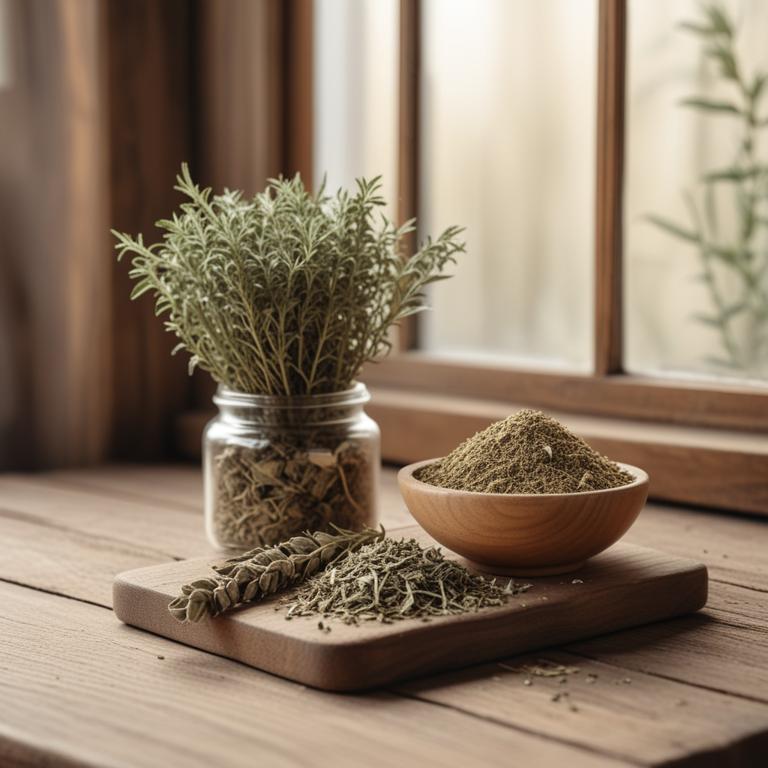
Herbs have been used for centuries to help with stomach discomfort, and for good reason.
Cuminum cyminum, or cumin, helps to ease bloating and gas by stimulating digestion and improving the movement of food through the digestive system. This can be especially helpful for people who experience discomfort after eating. Zingiber officinale, or ginger, has anti-inflammatory properties that can help to soothe the stomach and reduce nausea.
Ginger has also been shown to have a positive effect on digestion, making it easier for the body to break down food. Glycyrrhiza glabra, or licorice root, has anti-inflammatory properties that can help to calm the stomach and reduce inflammation. Foeniculum vulgare, or fennel, contains compounds that can help to reduce bloating and gas, and may also help to ease digestive discomfort. Cinchona officinalis, or cinchona, contains compounds that can help to reduce nausea and vomiting, making it a useful herb for people who experience stomach discomfort after eating.
These herbs can be used in a variety of ways, including as teas, supplements, and spice blends, and can be used in combination with other herbs to create a customized remedy for stomach discomfort.
What are the most commonly prescribed herbal preparations for stomach discomfort?

If you're experiencing stomach discomfort, herbal preparations can be a good option to try.
A decoction is a strong liquid made by boiling herbs in water, which can help soothe stomach issues like indigestion and nausea. This method is often used for roots and bark, which don't release their active ingredients as easily as leaves. Herbal tea is another popular preparation for stomach discomfort. It's made by steeping herbs in hot water, which helps release their active ingredients. The gentle action of tea can be especially helpful for sensitive stomachs. You can drink it warm or cold, depending on your preference. If you prefer a more convenient option, herbal capsules can be a good choice.
They contain dried herbs that have been powdered and put into a gelatin or vegetable capsule. This makes it easy to take a precise dose of the herb you need. Capsules are especially useful for herbs that have a strong taste or smell. An infusion is similar to tea, but it's made by steeping herbs in cold water, rather than hot. This method is often used for delicate herbs that can be damaged by heat. Infusions are a good option for stomach discomfort because they're gentle and can be easily digested. A tincture is a concentrated liquid made by soaking herbs in a solvent like alcohol or glycerin. Tinctures are often used for stomach discomfort because they can be easily absorbed into the bloodstream and provide quick relief.
They come in different potencies, so you can choose the strength that's right for you.
Additional Resources:
What herbs should you be cautious of when experiencing stomach discomfort?
If you have stomach discomfort, it's best to steer clear of Rauvolfia serpentina, also known as the Indian snakeroot.
This herb can cause stomach upset, nausea, and even diarrhea, making your symptoms worse. Similarly, Taxus baccata, or yew, is not a good choice either, as its toxic compounds can irritate the stomach and worsen digestive issues.
Silybum marianum, commonly known as milk thistle, is often used to support liver health, but excessive consumption can lead to stomach irritation and discomfort. When it comes to peppermint, or Mentha x piperita, while it's generally considered safe, large amounts can cause stomach upset, especially if you already have sensitive digestion.
Lastly, goldenseal, or Hydrastis canadensis, contains berberine, a compound that can irritate the stomach and worsen acid reflux, making it a herb to approach with caution if you're already experiencing stomach discomfort.
FAQ
Are there any specific herbs that can prevent stomach discomfort?
Ginger has been known to help with stomach discomfort.
It's often used in teas and soups to calm nausea and reduce inflammation. Peppermint oil can also provide relief by soothing the digestive tract and easing cramps.
These herbs can be consumed in various forms, including teas, capsules, and even added to food.
Is it safe to use herbal remedies for stomach discomfort during pregnancy?
If you're experiencing stomach discomfort during pregnancy, it's essential to be cautious when trying herbal remedies.
Some herbs, like peppermint and ginger, are commonly used for nausea and stomach issues, but others might not be safe.
Always check the ingredients and potential interactions with other substances you're taking.
Are there any herbs that can reduce the frequency of stomach discomfort?
Some herbs, like peppermint and ginger, have been known to help reduce stomach discomfort.
Peppermint can ease digestion, while ginger has anti-inflammatory properties that may calm an upset stomach. These herbs can be consumed as tea, added to food, or taken in supplement form.
They may help provide relief from stomach discomfort.
Related Articles

Causes and Herbal Solutions for Flatulence Relief

Sour Taste in Mouth: A Guide to Medicinal Herbs and Preparations
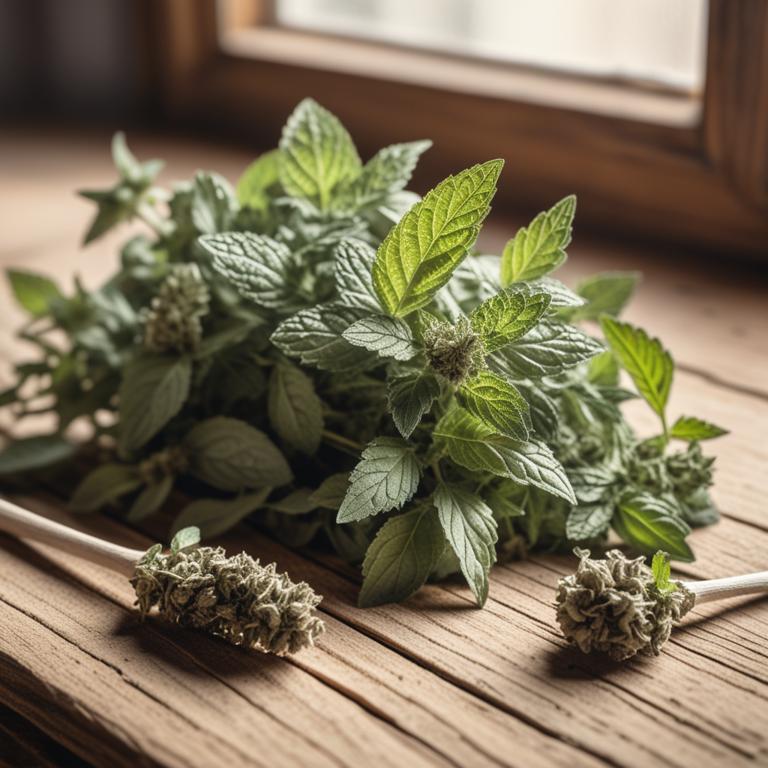
Throat Pain: Causes, Treatments, and Medicinal Herbal Preparations

Hemorrhoids Causes, Symptoms, and Natural Herbal Preparations
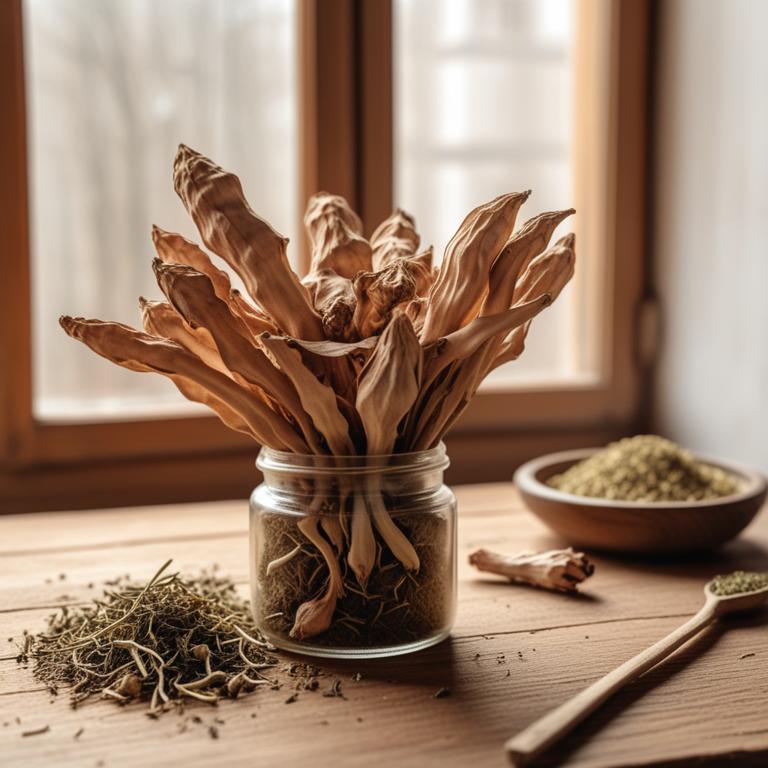
Stomach Pain Relief: Understanding Causes and Using Herbal Preparations




